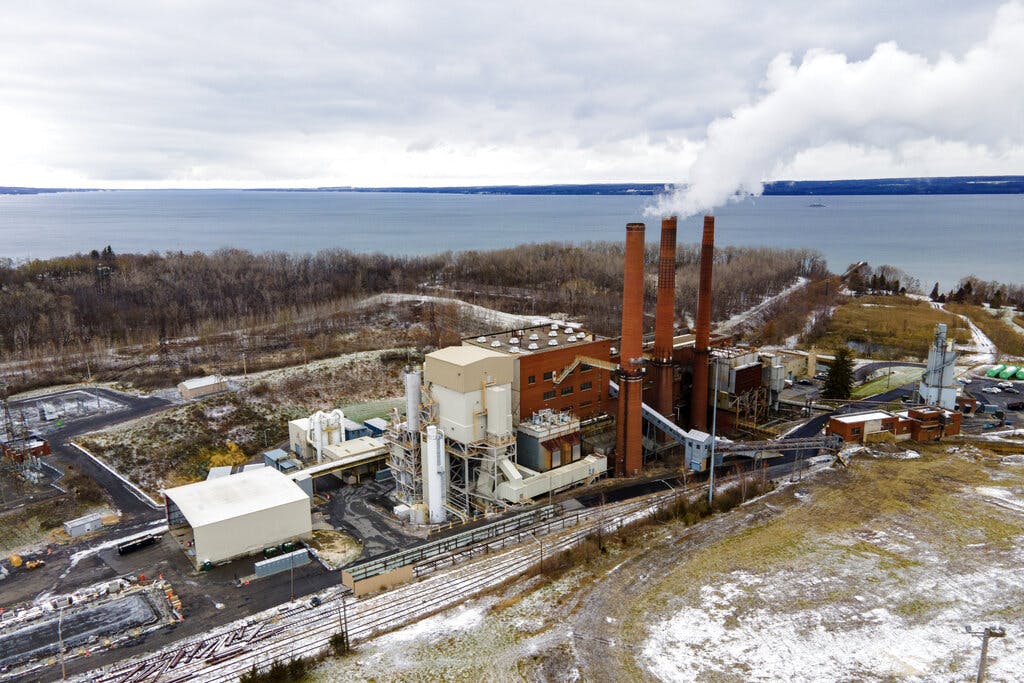Upstate New York’s Slice of the Cryptocurrency Future Runs Into an Old Foe, the Environmental Lobby
A white paper stating that the state ‘is in a strong legal position to put a pause on air permits for fossil fuel-burning cryptomining plants’ was released today.

The future of New York’s cryptocurrency mining industry could depend on a battle upstate over air emissions permitting.
The sharp divide between a Bitcoin mining company and a Finger Lakes organization over the industry’s direction will likely put New York State’s new Environmental Rights Amendment to the test later this year.
A white paper stating that the state “is in a strong legal position to put a pause on air permits for fossil fuel-burning cryptomining plants” was released today by the Columbia Law School’s Sabin Center for Climate Change Law.
Columbia’s paper “gives new momentum to months of advocacy” in the push “calling on Governor Hochul to impose a moratorium on Bitcoin mining,” according to a Watkins Glen-based nonprofit, Seneca Lake Guardian, which focuses on preserving the area’s “rural community character, and its agricultural and tourist related businesses.”
The organization is pushing for a statewide moratorium on “proof of work” cryptocurrency mining, a type of production that requires large amounts of electricity to execute.
A bill in the state assembly would place a three-year moratorium on such mining. The new white paper argues that the governor could institute this policy on her own.
A pause of this type would have an adverse impact on New York’s cryptocurrency mining industry, which accounts for about 20 percent of the country’s total output.
One company is caught in the middle.
The publicly traded Greenidge Generation LLC operates a Bitcoin mine in an old coal power plant in Dresden, a Yates County town on the west shore of Seneca Lake.
While critics point to the possible negative environmental impact of the plant, the company argues that it is following regulations while creating jobs in the area.
“We fully adhere to our existing air and water permits and will continue to do so,” a company representative told The New York Sun. “We are creating jobs at a rapid pace, and for people at all levels of education — trade jobs, high-tech jobs, union jobs — and paying double the area average wage by bringing a piece of the world’s quickly emerging digital future to upstate.”
Greenidge Generation’s air emission permit is up for renewal at the end of March. Proponents of a moratorium are arguing against it.
“The original Title V air permit for the Greenidge fracked gas plant was issued without any mention or analysis of Bitcoin mining or the environmental impacts that come with such operations,” a conservationist, Roger Downs, said. “This needs to be reconsidered and remedied through DEC’s air permit renewal process.”
Greenidge Generation argues that the plant is simply requesting the same emissions permits it was issued in 2016: “Our application asks for zero increase in permissible emissions and in fact, includes identification of projects that have the potential for an additional 40 percent reduction in emissions.”
Analysts believe this could be a bellwether for crypto mining regulations in New York. Columbia’s white paper points to the issue as a potential test of New York’s Climate Leadership and Community Protection Act, as well as the state’s Environmental Rights Amendment.
The latter was passed last year with more than 70 percent of the vote in a statewide referendum. Now the question is whether it will affect the state’s future prospects.

